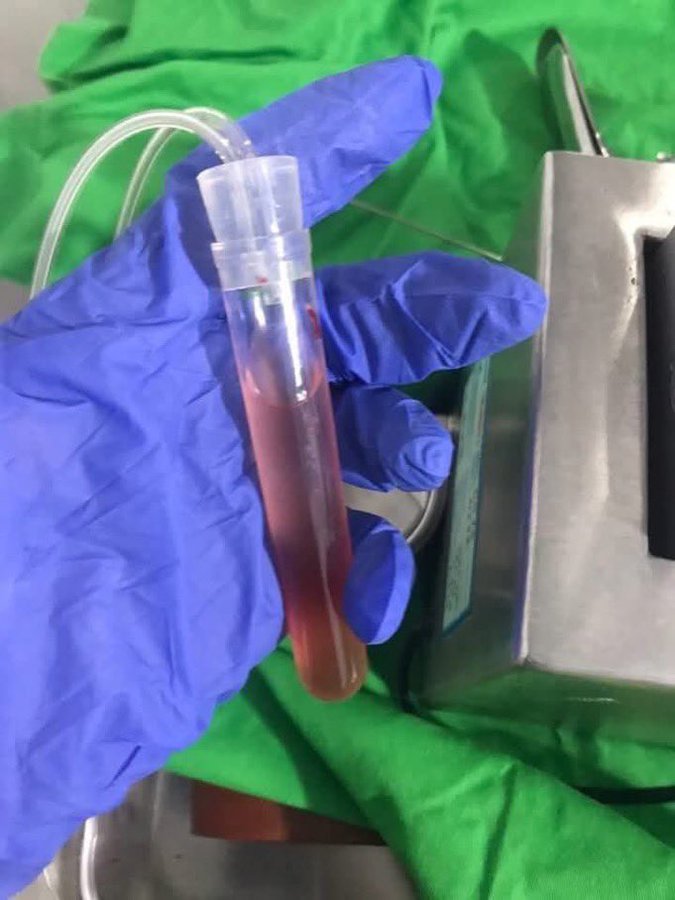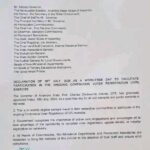A medical doctor has sounded the alarm over what he describes as a silent but growing crisis: the increasing number of young women in tertiary institutions participating in egg donation programs under questionable conditions.
Taking to his verified X (formerly Twitter) handle, @drpenking, the doctor highlighted what he called a “pandemic of egg donation” spreading rapidly across Nigerian universities. According to him, many female students, driven by economic hardship, are turning to egg donation as a means of survival — often unaware of the long-term health risks or the full scope of the procedure.
“Our young ladies are selling their future children for peanuts due to harsh economic situations, and everyone is silent,” he wrote.
In a thread that has since sparked widespread debate online, the doctor accused some fertility clinics in Nigeria of deploying undercover agents to recruit female students from campuses such as the University of Lagos (UNILAG) and Lagos State University (LASU). These recruits are then allegedly promised monetary incentives to encourage their friends to participate, creating what he described as a dangerous chain of exploitation.
He further alleged that these agents downplay or outrighty lie about the medical risks involved in egg donation, telling the women it is “100% safe with no side effects.”
“This is a big lie and manipulation,” he stated.
“To understand the gravity of the offense, it’s not one egg that is taken per cycle. A whopping 10–20 cells are extracted, depending on how many the woman produces.”
The doctor claimed that some donors are subjected to repeated extractions under false pretenses, such as being told that previous procedures failed. More troubling, he said, is that many of the eggs collected are not used within Nigeria but are instead shipped abroad — often to the United States — where they are sold to surrogate programs and same-sex couples for significantly higher sums.
He also highlighted the vast payment disparity, noting that while egg donors in developed countries like the UK are compensated between $5,000 and $10,000 per cycle (roughly ₦7.5 million to ₦15 million), Nigerian donors are allegedly paid as little as ₦50,000 to ₦100,000 (approximately $33 to $66).
“Buy for $30 and sell for $10,000. What sort of wickedness is that?” he asked.
The thread drew mixed responses from Nigerians online. While some expressed concern over the ethical and health implications of the alleged practice, others questioned the motives behind the outcry.
One user, @Mrses_K, referenced a similar warning issued last year by Dr. Philip Njemanze, who alleged an international plot targeting female reproductive health in Africa. She also questioned the government’s apparent silence and accused global figures like Bill Gates of being linked to the issue — an unsubstantiated claim that has fueled conspiracy theories in the past.
Others saw the issue differently. User @barbargbemyro dismissed the trend as less about poverty and more about young women’s desire for quick wealth and a lavish lifestyle.
“These aren’t hardship but greed,” he wrote.
Some users made light of the topic, while others, like @Sy_Nnadi, described the issue as “a serious pandemic and grave exploitation.”
As of now, there has been no official response from any of the fertility clinics mentioned or government agencies regulating reproductive health.
The doctor’s thread has renewed calls for stricter regulation of fertility practices in Nigeria, as well as better public awareness about the risks associated with egg donation. Advocates have stressed the need to protect young women from exploitation under the guise of medical procedures and financial relief.
Until formal investigations are launched or regulatory bodies respond, the practice remains largely under the radar — a trend that some fear could have long-term health and ethical consequences if left unchecked.



